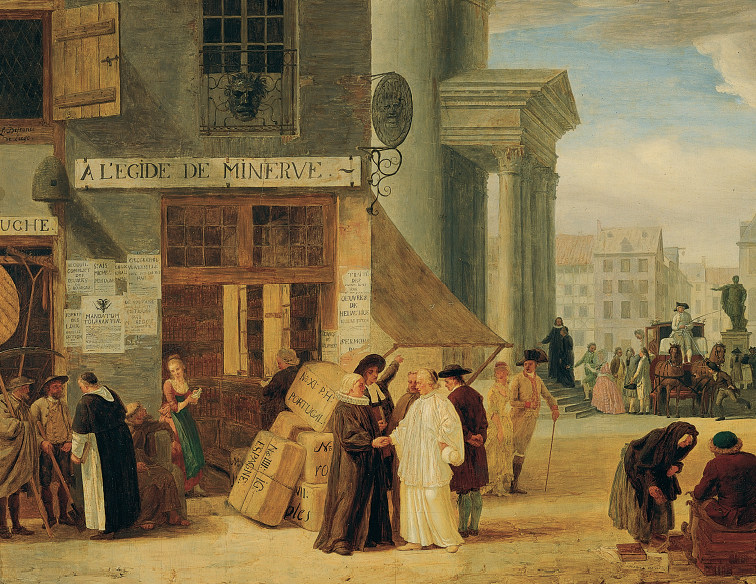Understanding World Societies:
Printed Page 572
> How did economic and social change and the rise of Atlantic trade interact with Enlightenment ideas?
EENLIGHTENMENT DEBATES TOOK PLACE within a rapidly evolving material world. Agricultural reforms contributed to a rise in population that in turned fueled substantial economic growth in eighteenth-
These economic and social changes were fed by an increasingly integrated Atlantic economy. Over time, the peoples, goods, and ideas that crisscrossed the ocean created distinctive Atlantic communities and identities.

The French Book Trade
Book consumption surged in the eighteenth century and along with it, new bookstores. This appealing bookshop in France with its intriguing ads for the latest works offers to put customers “Under the Protection of Minerva,” the Roman goddess of wisdom. Large packets of books sit ready for shipment to foreign countries. (Musée des Beaux-Arts, Dijon, France/Art Resource, NY)
Book consumption surged in the eighteenth century and along with it, new bookstores. This appealing bookshop in France with its intriguing ads for the latest works offers to put customers “Under the Protection of Minerva,” the Roman goddess of wisdom. Large packets of books sit ready for shipment to foreign countries. (Musée des Beaux-